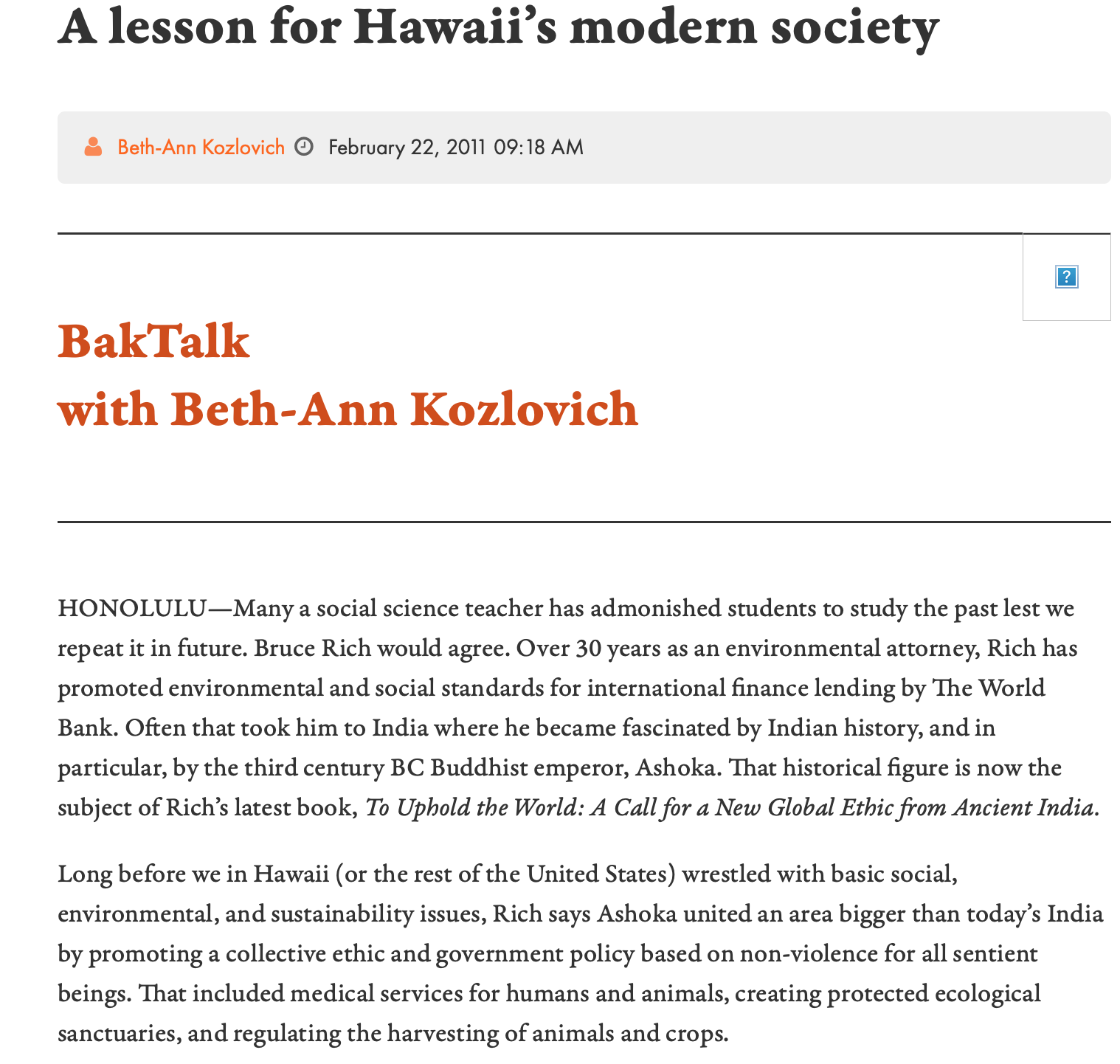- Bruce Rich (Interview with Beth-Ann Kozlovich)
- The Hawaii Independent (online newspaper)
- February 22, 2011
Many a social science teacher has admonished students to study the past lest we repeat it in future. Bruce Rich would agree. Over 30 years as an environmental attorney, Rich has promoted environmental and social standards for international finance lending by The World Bank. Often that took him to India where he became fascinated by Indian history, and in particular, by the third century BC Buddhist emperor, Ashoka. That historical figure is now the subject of Rich’s latest book, To Uphold the World: A Call for a New Global Ethic from Ancient India.
"Long before we in Hawaii (or the rest of the United States) wrestled with basic social, environmental, and sustainability issues, Rich says Ashoka united an area bigger than today’s India by promoting a collective ethic and government policy based on non-violence for all sentient beings. That included medical services for humans and animals, creating protected ecological sanctuaries, and regulating the harvesting of animals and crops....Hawaii could and should be different, he says, if it can look into its long ago past and simultaneously, into its long term future. Unlike other states, Hawaii possesses deeply layered cultural capital. 'The whole concept of pono—and I know everyone talks about it but may not put it into practice—is like the South Asian concept of dharma: A view in the context of the whole society and its relation to nature, what is the right thing to do, the correct thing to do in a certain situation to uphold the harmony and cohesion of society. Look to Hawaii’s motto: 'The Life of the Land is Perpetuated in Righteousness.'"
"I know, you’re shaking your head ... did we really need a visitor to tell us this? Guess so."



